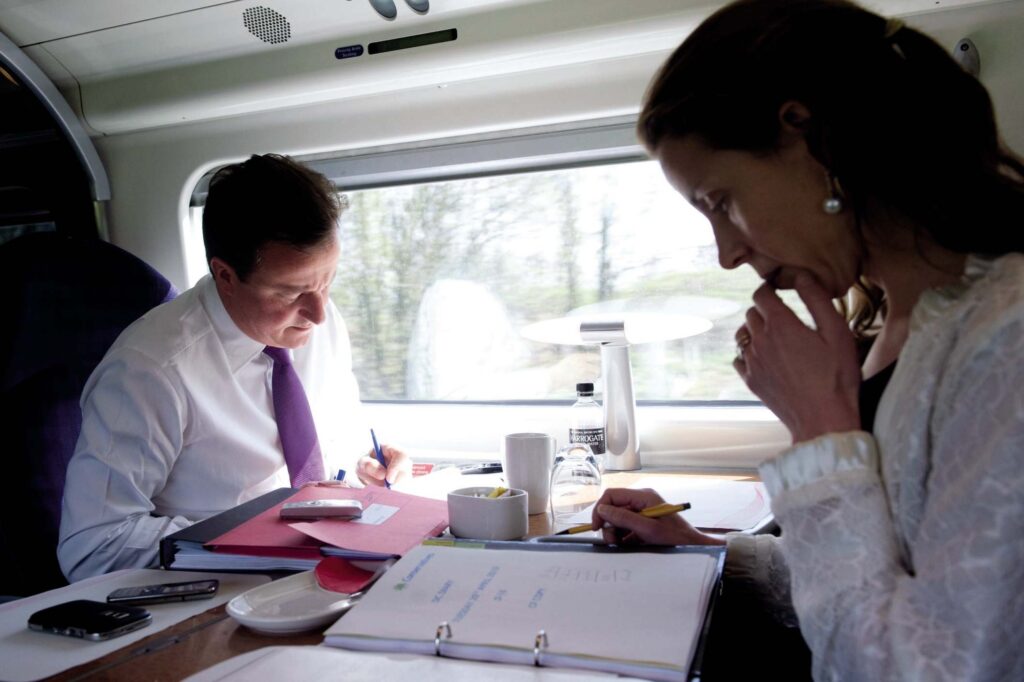I have been reading political biographies for longer than I care to remember––and although they are entertaining, sometimes psychologically fascinating– there persists in the world politics an extraordinary mixture of of light and darkness, of naked ambition and human vulnerability, of strength and weakness. How could it be otherwise? Politicians are after all flesh and blood. We may live behind a number of polished doors and what is revealed when they are opened especially by others can be both uncomfortable and challenging.
I wonder if anybody remembers Cameron? And if you do– what is his legacy for you? I bought this book as a kind of accident – a Waterstones gift token secured a couple of volumes that I was looking for leaving me with that irritating dilemma of what to do with the few pounds left. The uninviting cover soon revealed what I thought might be interesting––and I wasn’t disappointed! It claims on the cover that the author was for over 10 years one of the most influential Women in British politics. In the 32 chapters, subdivided into three parts ( Journey to power, Number 10 and Europe the stay unfolds of the sheer pace and unpredictability of British politics.
Once I had overcome my visceral feelings about Cameron and Europe – and stopped looking for a greater level of reflexivity ( we all find our own way of justifying ourselves!) the fluency and intelligence were both attractive and entertaining. The diarists attention to detail paints a picture of the sheer relentlessness of Government. Personality, character, human weakness and fallibility combined with economics, national security, the management of the British media make a potent blend for such a narrative. Only the hardest of hearts could resist some measure of sympathy for any machinery of government working in such circumstances. Hugo Young, at a Hay Writers Festival, reflecting on the art modern political biography said that best books on government are often written by those who can watch as well as do. This may be the case here – the writer proves to be an an acute observer of both the strengths and weaknesses of the Cameron years.
I have lived through eleven elections since 1979. Some of them were inevitable outcomes and others a surprise – but these years show us a gradual revolution in the traditional two party system and (perhaps) a growing frustration with the political system. Would Cameron ( and his liberal centre-Right Conservatism ) have been possible without Blair ? I suspect not ? Who would have expected such a Government to deliver on equality through the Marriage (Same Sex Couples) Act of 2013 ? Conversely who would have expected the end of this story and what we presently live with in terms of nationalism and a move to the right? Is it recoverable? Who cares?
The latter chapters acknowledge that this government sowed most of the seeds of both the 2016 vote for Brexit and its own ( and many others) destruction.
We have lived through a period of austerity that has been destructive to many – some of who have yet to recover.This was an elitist and privileged leadership that was quickly disdainful of ordinary people. The Cameron years already feel like another lifetime and ironically the Tories have become almost exactly the party Mr Cameron was determined to prevent them becoming. I hope Dominic Cummings is keeping his record of some of what followed.
There are two other notable elements of this book worth drawing attention to. These pages are significant for what they do not tell us as much as for what they do reveal. Such admirable discretion is frustrating indeed. Silence – however – is a virtue. The other is the extraordinary ability of this woman to keep her sanity and children so balanced while enabling so much to work. It is impossible not to admire this.
Falls life in politics continues – her reward a seat in the Lords where her influence and wisdom as a woman continues to be exercised.
Now – to the next political volume – any ideas??

